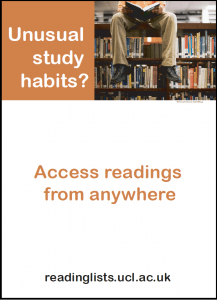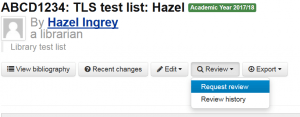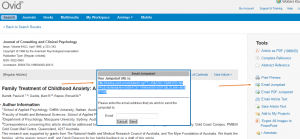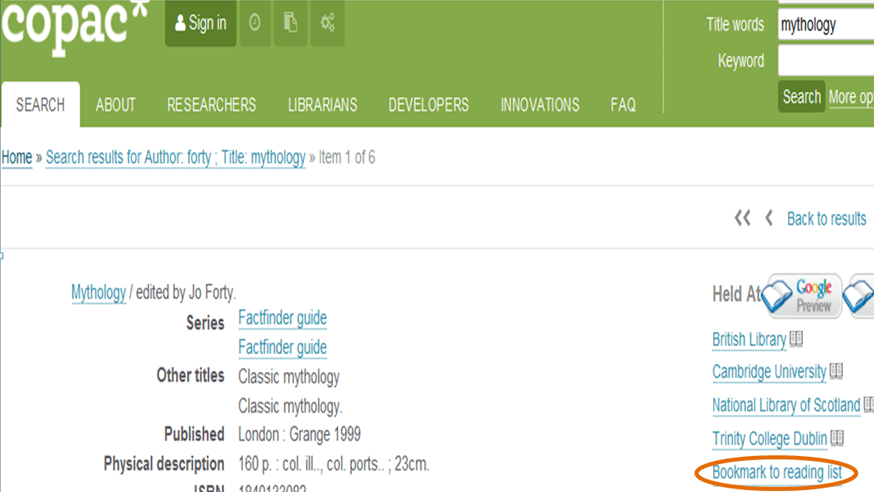Earlier this year I met with the MAPS Faculty Library Committee to give them a quick introduction to ReadingLists@UCL. The composition of this meeting was really good because as well as academics the attendees included the Subject Librarian, the StAR (Student Academic Representative), academic/student liaison and an administrator, so I could showcase the benefits of the online reading lists to all of these audiences.
Some departments in MAPS find that they have little need for books in their teaching so this was the perfect opportunity to illustrate that a reading list does not have to be stuffed full of references to books and journals, but instead can be as little as a few links to relevant professional organisations that students need to be aware of. The Q&A session was followed by a brief demo of what reading lists could contain, where I emphasised various online resources, not just books.
Following on from the meeting we were tasked with putting together a short ‘crib sheet’ for the department. We already have the online ‘Quick Guide’, but we tailored another guide for the MAPS faculty and included an example of how to link to a website, how to link reading lists to Moodle blocks and how to install the Bookmarking Button. The resulting MAPS Getting Started with online lists guide is now online.
We further customised the guide with a list of suggested resources which could be useful, particularly on courses where reading lists aren’t commonly used. Being familiar with the subject areas, Robert Tomaszewski, the Subject Librarian, was very happy to contribute these suggested resources.
This list of suggested resources is also presented as an online list to illustrate how it works in practice. MAPS lecturers can include the resources in their own reading lists, or link to the guide. For example, there is a guide to avoiding plagiarism, or you might prefer to include the link to UCL’s current plagiarism guidelines for students, as some other academics have also done on their reading lists.
MAPS have chosen to recommend that their lecturers create their own lists. We set the lists up, send editing access to the tutor and offer a quick orientation, so they can start managing their list. Take a look at an interesting list.
This strategy has worked fantastically well for the Faculty, with resulting successes so far of 99 out of 103 courses for Mathematics (96%) having an online reading list, whilst Statistical Science have reached the magic 100%. A similar approach could be taken by other Departments with low or relatively low take-up of reading lists, with suggested resources tailored to each department.
There are of course many alternative approaches to increase the number of reading lists and improve the student experience. Please email us for further information, or to request a ReadingLists@UCL poster, aimed at either students or staff, which you can customise for your department.
 Close
Close











